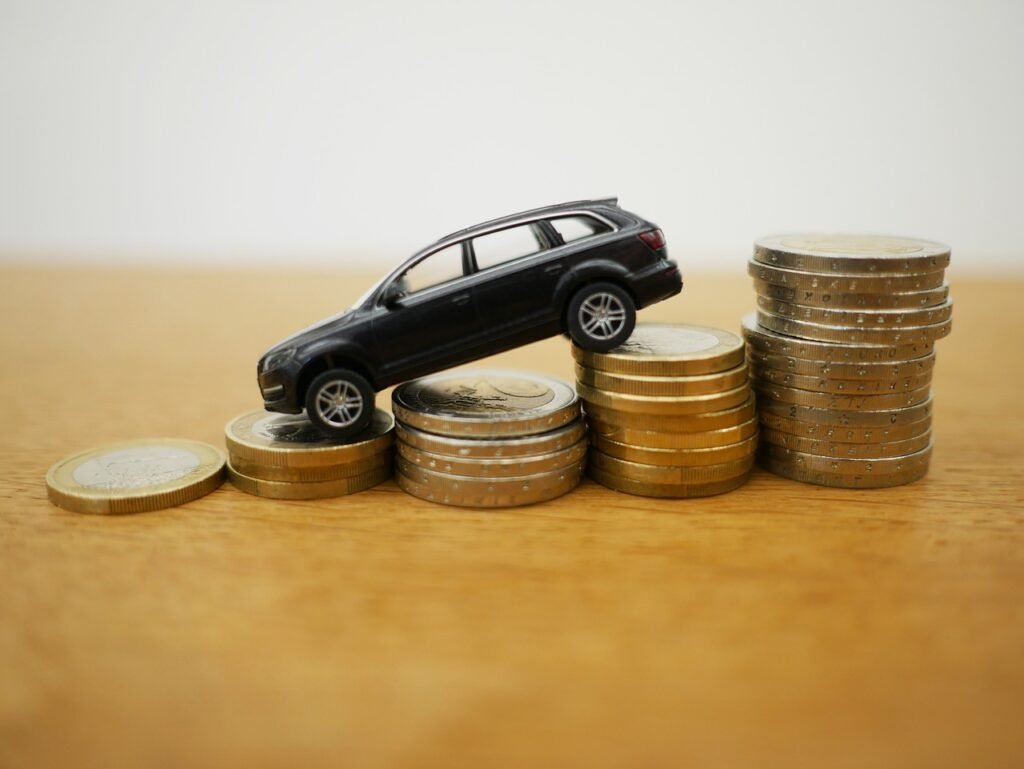Have you ever found yourself caught in the crossfire of the age-old debate: leasing vs. buying a car? 🚗💭 If so, you’re not alone. The world of car ownership is riddled with car leasing myths and misconceptions, especially when it comes to leasing. But what if everything you thought you knew about leasing was wrong?
Prepare to have your assumptions challenged as we dive into the truth behind car ownership. From hidden benefits of leasing to situations where buying makes more sense, we’ll explore the nuances that could save you thousands of dollars and countless headaches. 💡💰 Whether you’re a first-time car shopper or a seasoned road warrior, understanding the real pros and cons of leasing vs. buying is crucial in today’s automotive landscape.
In this myth-busting journey, we’ll uncover the facts behind common leasing myths, decode complex lease terms, and break down the financial considerations that could make or break your next car deal. Buckle up as we steer you through the five key areas that will revolutionize your approach to car ownership! For a deeper dive into how leasing stacks up against buying, check out this expert comparison guide by NerdWallet.
Common Leasing Myths Exposed

“Leasing is always more expensive than buying”
This common misconception overlooks the nuanced financial aspects of leasing versus buying. In reality, leasing can be more cost-effective in certain situations. Let’s break down the comparison:
| Factor | Leasing | Buying |
|---|---|---|
| Monthly Payments | Generally lower | Usually higher |
| Down Payment | Often smaller or none | Typically larger |
| Maintenance Costs | Often covered under warranty | Owner’s responsibility |
| Depreciation | Not a concern for lessee | Affects resale value |
Leasing often results in lower monthly payments and requires less upfront capital. For those who prefer driving newer vehicles every few years, leasing can be more economical than the cycle of buying, depreciating, and selling.
“You can’t negotiate lease terms”
Contrary to popular belief, lease terms are indeed negotiable. Smart lessees can secure better deals by:
- Negotiating the vehicle’s purchase price (which affects monthly payments)
- Discussing mileage allowances
- Exploring different lease lengths
- Negotiating the money factor (interest rate equivalent)
“Leasing is only for luxury cars”
While luxury brands often promote leasing, it’s a misconception that leasing is exclusive to high-end vehicles. Many manufacturers offer attractive lease options across various vehicle categories, including:
- Economy cars
- SUVs and crossovers
- Electric and hybrid vehicles
- Family minivans
“You can’t customize a leased vehicle”
While extensive modifications are discouraged, lessees have some flexibility in customizing their vehicles:
- Temporary additions (e.g., removable bike racks)
- Professional window tinting (if allowed by lessor)
- Minor aesthetic upgrades (e.g., seat covers, floor mats)
Always consult your lease agreement before making any changes. With these myths debunked, let’s explore the hidden benefits of leasing that many car shoppers overlook.
The Hidden Benefits of Leasing

Lower monthly payments
One of the most significant advantages of leasing a car is the potential for lower monthly payments compared to purchasing. This is because you’re only paying for the vehicle’s depreciation during the lease term, rather than its full value.
| Leasing | Buying |
|---|---|
| Lower monthly payments | Higher monthly payments |
| Pay for depreciation | Pay for full vehicle value |
| Shorter commitment | Long-term investment |
Driving newer cars more frequently
Leasing allows you to experience the latest automotive technology and safety features without the long-term commitment of ownership. Typically, lease terms range from 24 to 48 months, enabling you to upgrade to a new vehicle more often.
Reduced maintenance costs
With a leased vehicle, you’ll likely benefit from:
- Lower repair expenses (most issues covered under warranty)
- Fewer major maintenance requirements
- Predictable monthly costs
Tax advantages for business use
For business owners, leasing a vehicle can offer significant tax benefits:
- Potential to deduct lease payments as a business expense
- Simplified record-keeping for tax purposes
- Opportunity to claim depreciation on the leased vehicle
Easier trade-in process
At the end of your lease term, you have several options:
- Return the vehicle and lease a new one
- Purchase the vehicle at a predetermined price
- Walk away (subject to any fees or charges)
This flexibility eliminates the hassle of selling a used car or negotiating trade-in values, making the transition to your next vehicle smoother and more convenient.
Now that we’ve explored the hidden benefits of leasing, let’s examine scenarios where buying a car might be the better option.
When Buying Makes More Sense

Long-term cost savings
When considering long-term financial implications, buying a car often makes more sense than leasing. Over time, owning a vehicle can lead to significant cost savings, especially if you plan to keep the car for several years.
| Buying | Leasing |
|---|---|
| No monthly payments after loan payoff | Continuous monthly payments |
| Lower insurance costs | Higher insurance requirements |
| Potential resale value | No equity buildup |
No mileage restrictions
One of the most liberating aspects of buying a car is the absence of mileage restrictions. This freedom is particularly beneficial for:
- Commuters with long daily drives
- Frequent road trip enthusiasts
- Sales professionals who travel extensively
- Families planning cross-country vacations
Building equity in your vehicle
Purchasing a car allows you to build equity, unlike leasing where you’re essentially renting the vehicle. This equity can be valuable in several ways:
- Trade-in value for your next vehicle purchase
- Potential cash from private sale
- Collateral for loans if needed
Freedom to modify or sell
Owning your vehicle gives you the liberty to customize it to your liking or sell it whenever you choose. This flexibility is especially appealing for:
- Car enthusiasts who enjoy modifying their vehicles
- People who may need to relocate or change their lifestyle unexpectedly
- Those who prefer having full control over their assets
Now that we’ve explored when buying makes more sense, let’s delve into the crucial aspect of understanding lease terms and conditions for those still considering leasing as an option.
Understanding Lease Terms and Conditions

Mileage limits explained
Mileage limits are a crucial aspect of car leasing that often confuse potential lessees. They’re also a common source of car leasing myths, leasing misconceptions, and auto lease misunderstandings. These limits stipulate the maximum number of miles you can drive the leased vehicle without incurring additional charges. Typically, lease agreements offer annual mileage allowances ranging from 10,000 to 15,000 miles.
| Mileage Allowance | Typical Usage | Best For |
|---|---|---|
| 10,000 miles | Low | City drivers, short commutes |
| 12,000 miles | Average | Most drivers |
| 15,000 miles | High | Long commutes, frequent travelers |
Exceeding these limits results in overage fees, usually charged per mile. It’s essential to accurately estimate your driving habits before signing a lease to avoid unexpected costs.
Wear and tear charges demystified
Lease agreements include provisions for normal wear and tear, but excessive damage can lead to additional charges. To avoid surprises at lease-end:
- Keep detailed records of maintenance and repairs
- Address minor issues promptly
- Familiarize yourself with the lessor’s definition of “normal wear and tear”
- Consider a pre-inspection before returning the vehicle
Early termination options
Sometimes, circumstances change, and you may need to end your lease early. While not ideal, most leases offer early termination options:
- Lease transfer or assumption
- Lease buyout
- Early termination fee payment
Each option has financial implications, so it’s crucial to review your lease agreement and consult with your lessor to determine the best course of action.
End-of-lease choices
As your lease term approaches its end, you’ll typically have several options:
- Return the vehicle and walk away
- Purchase the vehicle at a predetermined price
- Lease a new vehicle from the same manufacturer
Consider your financial situation, the vehicle’s condition, and your future needs when making this decision. With this understanding of lease terms and conditions, you’re better equipped to make informed decisions about your next vehicle. Now, let’s explore the financial considerations of leasing versus buying to help you determine which option aligns best with your goals—and cut through the car leasing myths, leasing misconceptions, and auto lease falsehoods that often cloud the decision.
Financial Considerations: Leasing vs. Buying

Upfront costs comparison
When considering leasing vs. buying a car, upfront costs play a crucial role in decision-making. Let’s compare the initial expenses:
| Expense Type | Leasing | Buying |
|---|---|---|
| Down Payment | Lower (often optional) | Higher (typically 10-20% of car value) |
| Security Deposit | May be required | Not applicable |
| First Month’s Payment | Required | Not applicable |
| Registration Fees | Similar for both options | Similar for both options |
Leasing generally requires less money upfront, making it an attractive option for those with limited immediate funds.
Long-term financial impact
Over time, the financial implications of leasing and buying diverge significantly:
- Leasing:
- Fixed monthly payments
- Potential for lower repair costs (covered by warranty)
- No equity build-up
- Buying:
- Higher initial payments, but ownership after loan payoff
- Potential for higher repair costs after warranty expiration
- Builds equity in the vehicle
Residual value and depreciation
The concept of residual value is crucial in leasing. It represents the car’s estimated value at the end of the lease term. Depreciation, on the other hand, affects both leasing and buying:
- Leasing: You only pay for the depreciation during the lease term
- Buying: You bear the full cost of depreciation over the car’s lifetime
Credit score implications
Both leasing and buying can impact your credit score:
- Credit checks: Similar for both options
- Payment history: Equally important for leasing and buying
- Credit utilization: Leasing may have a lower impact due to lower monthly payments
Now that we’ve examined the financial aspects, let’s explore when buying might be the better choice.
Conclusion

Leasing a car often gets a bad rap due to persistent car leasing myths and misconceptions. However, as we’ve explored in this post, leasing can be a smart financial decision for many drivers. By understanding the true benefits of leasing—including lower monthly payments, access to newer vehicles, and reduced maintenance costs—you can make an informed choice that aligns with your lifestyle and budget.
Ultimately, the decision to lease or buy comes down to your individual circumstances. Consider your driving habits, financial situation, and long-term goals when weighing your options. Whether you choose to lease or buy, arm yourself with knowledge about lease terms, conditions, and financial implications to ensure you’re getting the best deal possible. By debunking these common leasing myths, you’re now better equipped to make a decision that truly serves your needs and preferences in vehicle ownership. Looking for more actionable advice? Head to the Investillect blog.

